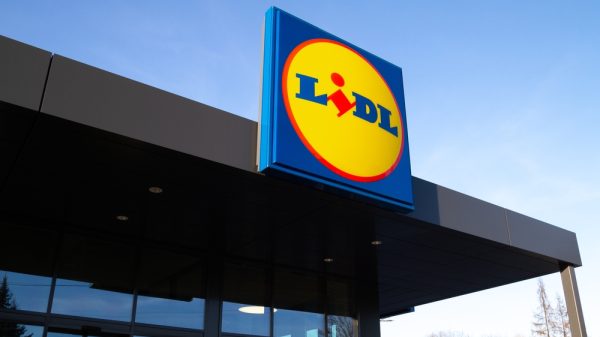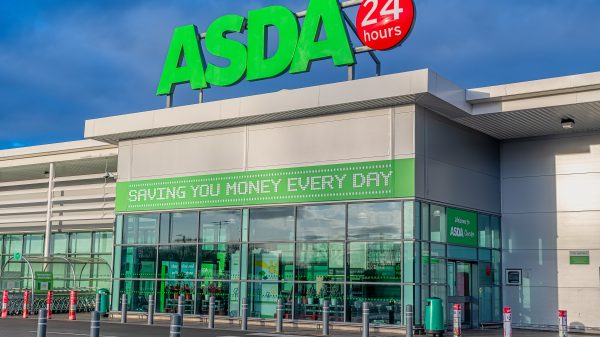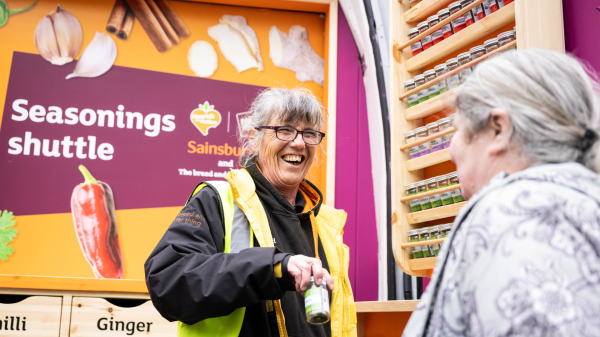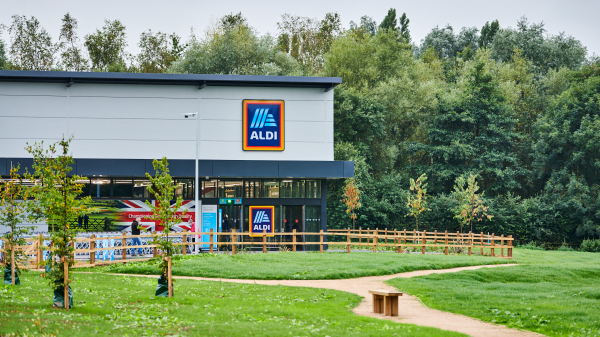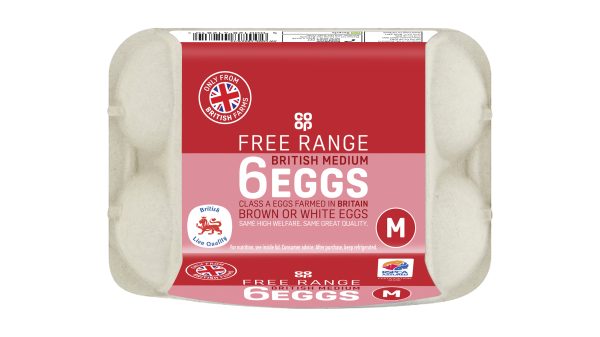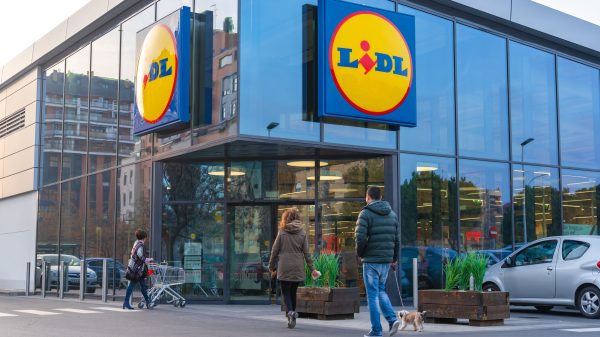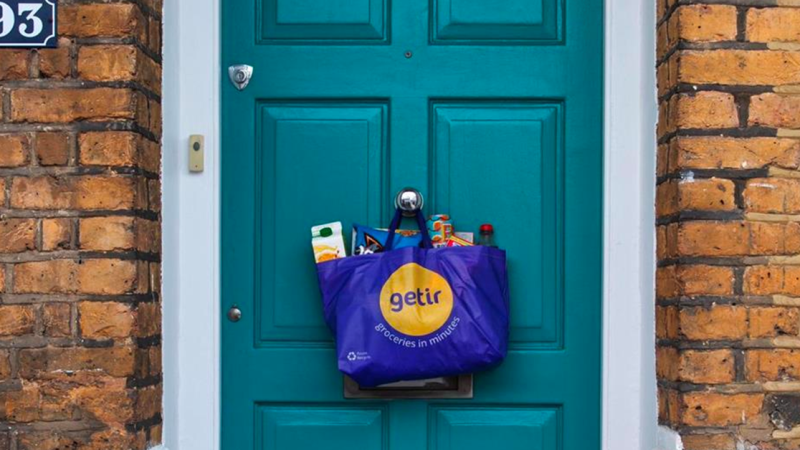Over a year in which value has become the be-all and end-all for many hardpressed shoppers, Waitrose has struggled.
Sales were down 3% in its financial year, and market share fell from 5% to 4.7%.
However, as inflation has begun to ease and an end of the cost-of-living crisis is in sight, the upmarket grocer is banking that shoppers put other criteria at the heart of their purchasing decisions and believe that its high standards in food provenance and sustainability will pay off.
Waitrose boss James Bailey said earlier this year: “We have to be committed to what makes us different. We believe we have the world’s best animal welfare credentials, and will be majoring on that more this year.
“Our customers care the most about quality service and ethics. We’re just making sure that we’re in the very best shape we can be for our customers. Just as customers switch out [from shopping with Waitrose], they can switch back in again.”
With its ‘no compromise’ animal welfare campaign and price cut push launching during the summer, Waitrose is putting the two hand in hand to drive growth.
Grocery Gazette sits down with senior agriculture manager Jake Pickering to find out what makes Waitrose the leader in animal welfare and why it’s looking to push that message right now.
Leading the pack in animal welfare
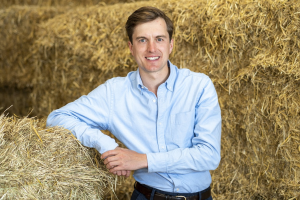
Waitrose & Partners senior agriculture manager, Jake Pickering
Day to day, Pickering works at the heart of Waitrose agricultural operations, alongside its trusted farmers and suppliers.
In simple terms, the business puts so much effort into animal welfare “because it’s simply the right thing to do”, according to Pickering.
However, he admits that it’s also becoming “a really important thing for our customers”.
“I’ve been in this industry now for over a decade and as every year goes past, we’re getting more and more customers wanting to understand how their food is produced.
“We’re in the fortunate position that we’re really proud of our supply base and we’re happy to communicate that.”
There is evidence to back up Bailey’s claim that Waitrose has “the highest animal welfare standards of any supermarket in the world”. The grocer has won more Compassion in Farming awards than any other supermarket.
Pickering says: “So often our competitors make big claims and actually they don’t have a clue where the products are coming from that are going into their ready meals.”
He says that sometimes ensuring the highest standards, down to every last ingredient in own-label products, “comes at a significant expense” to the business and “it’s not the most convenient way of doing things”.
However, he affirms that “you’re getting great quality products, not having to compromise on animal welfare, and it’s not at any extra expense to the consumers”.
The ‘no compromise’ campaign
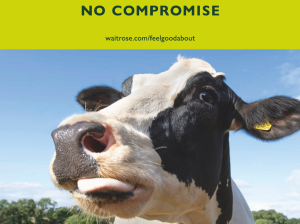
Last month, Waitrose launched a value-driven campaign to highlight its ‘no compromise’ commitment to animal welfare.
Pickering says this acts a reminder for customers of its leadership position.
“We firmly believe we’re one of the best value retailers in the market, if not the best.
“While others are compromising on their standards to get to a certain price point, we’re continuing to invest in our prices while maintaining our animal welfare standards.”
The series of adverts, which are part of the ‘Food To Feel Good About’ Campaign, highlight the supermarkets breadth of welfare values, down to ingredients in its own-label ranges.
“The meat and dairy used in our primal offering is also the same as in our ready meals, our pies and pizzas.
“When we say no compromise, we really do mean that.”
While the campaign hopes to attract the attention of consumers on TV and across the retailers 300+ UK stores, Waitrose has upped its game across social media too with the launch of a new Instagram account dedicated to real-life content produced by its farmers.
From detailing how spiders help with pest control in asparagus growing, to bringing new life onto cattle farms, Pickering says that customers are “increasingly interested in agriculture and the supply chain”.
“It’s not the polished marketing that our customers would see in our ‘Food To Feel Good About’ or Christmas ads, it is authentic content coming from our actual farmers and growers, showing what a typical day looks like on the farms that supply our brands.”
Relationships with suppliers
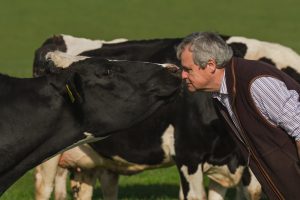
Waitrose has long-standing relationships with the vast majority of its supply base, having worked with its beef suppliers for 25 years, and its egg suppliers for over 30.
This means that trust is strong in such relationships.
“I spend my life going around farms, as do the team to see what’s working well, ensuring that we’re continuing to push boundaries. It’s all about having long-term trusting relationships with lots of transparency,” Pickering says.
“Over the last fortnight we’ve been on a roadshow around Wales, Devon and Wiltshire meeting our egg farmers, we’ve been to the Royal Welsh meeting of lamb farmers.
“I spend a lot of time in village halls eating sandwiches and drinking tea with farmers,” he laughs.
“It is a good way to keep our finger on the pulse and to make sure we maintain open relationships.”
Life had been hard for farmers over the last 18 months or so as “rampant inflation” has hit.
Pickering says he is in regular contact with the majority of the supermarket’s livestock suppliers “to really understand what’s going on, if there are any concerns or problems, how we can be part of the solution”.
Last February, Waitrose pledged to provide further support for farmers amid the national pig culling crisis and in May, the retailer announced another support package for its British pork farmers of up to £16m as the industry faced “its biggest crisis in a generation.”
More recently, it invested £2.6m in its egg farmers to provide support amid soaring production costs as Russia’s invasion of Ukraine drove up farmers’ energy bills.
“I meet monthly with the Defra food and farming team so that when there is a challenge that’s happening within our supply base, we feed it right into the top of government. We’ve got to have a good relationship with them so that we can help provide any support we can on a wider basis.”
Collaborating with John Lewis

Waitrose is also helping to reduce the environmental impact across its supply chain through cross-collaboration with its sister company John Lewis.
Pickering says that when he first arrived at Waitrose in 2020, one of its Welsh farmers said their wool had no value and that it was to be burned because it wasn’t worth the diesel to take into a delivery centre.
“I thought that was awful and we had to do something about it,” he explains.
“We set up a mattress supply chain and we’re now entering our third year of the relationship, taking wool from our high welfare farm, and producing the John Lewis classic range of mattress with that. We’ve had a great success.”
Off the back of that, Waitrose higher welfare beef farmers are now supplying John Lewis with leather used for its own-label sofas and chairs.
“We’re always looking at what more we can do – our farmers are so proud of the products that they make, that they want to make sure absolutely every bit of it is utilised in some way, shape or form.”
“We’re never standing still, it’s not a goal we’re trying to get to – it’s a continual journey.”
IGD global insights leader Bryan Roberts agrees that “Waitrose is certainly leading the agenda,” when it comes to animal welfare.
He points out tha the retailer’s “older and more affluent shoppers have been less impacted by the economic turbulent and are therefore better able to focus on issues like welfare”.
He adds that with Waitrose bold claims of having the highest welfare standards of any retailer in the world has led to others raising their game.
Pickering acknowledges that other retailers have made improvements on this front and says this “has to be applauded”.
“I’ve just got to keep my foot on the gas and make sure we’re staying in front of them because that’s what our customers would expect,” he adds.
Roberts admits that while issues such as sustainability, provenance and animal welfare have been “deprioritised” by shoppers amid the cost-of-living crisis, this will become more important as financial pressures ease.
Waitrose could stand to benefit and its high standards, which have set the bar in animal welfare, could lead to higher sales.

